Who is Willem Geertman and Why He was Killed
Wilhelmus JJ Lutz Geertman belonged to a religious missionary group Calama in the Netherlands. A religious group who dedicate their work in serving oppressed people in the Third World such as the Philippines. He arrived in the Philippines in early 1970s where he enrolled at the Ateneo De Manila University and University of the Philippines to deepen his understanding of the Filipino people. While in UP, he observed that many youth-students were protesting against the policies and program of then dictator Ferdinand Marcos. He was in UP when the martial law was declared. As natural born sensitive and considerate to the plight of oppressed and poor sectors, he then discussed with youth activists and learned further of the social cancer perpetrated by the Marcos dictatorship.
After studying at the university, he then immersed with the Filipino workers, particularly, construction workers. He actually worked for a low wage, as low as other Filipino workers earned. His employer offered a higher wage but he refused as his work is no different from others. His integration with the Filipino working class educated him and strengthened his commitment to serve the poor.
In 1979, he and his religious group was invited by Bishop Julio X. Labayen, OCD for a mission in the Prelate of Infanta in Quezon province for a program of establishing a “Church of the Poor.” They were known as Missionary Volunteers or MIVO. As they were different from other religious group who embraces simple living, they integrated with the poor farmers and even constructed their own hut at Brgy. Reserva, Baler, Aurora (Aurora was previously part of Quezon but under the prelate). Geertman actually tilled, took care and harvested crops of farmers.
Geertman and his MIVO colleagues worked under Bishop Labayen's mandate, primarily of knowing “Who is the poor?” Their two-year work in Baler, Aurora resulted that 89% of the population of Baler valley, the towns of Baler, Maria Aurora, San Luis, Dipaculao and Infanta were poor. They were majorly farmers, indigenous people, fisherfolk and informal settlers. Geertman's group learned of the rural poor of Baler valley, who the church could not reach, no social services, landless, no properties, vulnerable to exploitation and oppression. Their mission report was the basis of establishing the Church of the Poor under the Prelate of Infanta.
As their mission in Aurora developed, Geertman and MIVO implemented health and education programs. As rural poor of Aurora were educated, amongst them rose as leaders, thus, organizing them as people's organization became a necessity to continue the protection and promotion of their basic rights. Geertman was instrumental in the formation of sectoral organizations such as the Aniban ng Kilusang Magsasaka ng Aurora (AKMA, Association of Farmers' Movement of Aurora) ; Samahan ng mga Kababaihan ng Aurora (SAMAKA, Women's Association of Aurora); Samahan ng mga Kabataan ng Aurora (SAKA, Youth Association of Aurora) ; and Samahan ng mga Katutubo ng Sierra Madre (SKSM, Indigenous People's Association of Aurora). These sectoral groups would be the core groups of the provincial farmers' alliance Panlalawigang Alyansa ng Magbubukid ng Aurora (PAMANA, Aurora Provincial Farmers' Alliance) that was established in 1996.
Geertman also contributed to the formation of Justice and Peace Action Group (JPAG), a group protecting the basic rights of the rural poor. With the MIVO's achievements, it got the ire from the Philippine military who harassed and threatened them with black propaganda. But Bishop Labayen believed that Geertman and MIVO were doing what was right, thus, he became the Bishop-Founder of MIVO, in the process becoming a secular institute.
As the program of the prelate further progressed, MIVO became the resource group of educating more rural poor and layworkers, primarily on issues affecting the people, inputs on encyclicals, church's social doctrine, vocation and mission of layworkers. Geertman became a convernor of the established Lay Forum – Luzon.
In 1986, the MIVO established the Bahay-Talakayan para sa Rekonstruksyon at Ikauunlad ng Sambayanan or the Bataris Formation Center, with the objective of sustaining development programs for the benefit of the rural poor and educating layworkers. The Bataris and JPAG primarily became the groups that protect and promote the rights of the rural poor in Aurora. These groups became constant victim of harassment and threat of the Philippine military, tagging them as “communist fronts.” But Geertman and the leaders and members of Bataris, JPAG and farmers' grooups, stood their ground and upheld their basic rights to organize and promote their welfare.
In 1991, Geertman went back to the Netherlands, where he joined the workers' movement. He lived as a Dutch worker and he donated part of his income to the struggle of the rural poor of Aurora. He coordinated with Filipino migrants group in the Netherlands and continued to support the campaign of poor farmers in the Philippines. He returned in the Philippines in 2001, he said to his Dutch and Filipino colleagues that he is “returning home.”
In 2002, Willem Geertman returned to Aurora to continue serving the rural poor. He educated more farmers, indigenous people and fisherfolk to learn of their basic rights. He facilitated many development programs to benefit the rural poor. He was also active in promoting farmers' rights against land grabbing and displacement, opposing logging and land use conversion operations in the province.
In 2006 and 2007, during the height of the implementation of the Operational Plan Bantay Laya, the counter-insurgency program of the Gloria Macapagal-Arroyo regime, Geertman was villified by the 48th Infantry Battalion of the Philippine Army as a leader of the National Democratic Front (NDF), on a letter its circulated in Aurora. The Philippine military accused him as soliciting support to stockpile explosives in San Luis town. He supported PAMANA's campaign against the Aurora Special Economic Zone Act of 2007 (ASEZA) promoted by the landlord Angaras.
In 2009, Willem Geertman became the executive director of Alay Bayan Luson, Inc. (ABI), a disaster preparedness non-government organization serving farmers in central and northern Luzon. As many typhoons affected the farmers such as Ondoy-Pepeng in 2009, Juan in 2010, Pedring in 2011, Geertman was busy facilitating relief and rehabilitation projects to farmer areas affected.
Geertman also supported the struggle of Hacienda Luisita farmworkers. He was instrumental in aiding the farmworkers, facilitated livelihood programs for the farmworkers and refered them to other development institutions. He continued his support to Aurora farmers led by PAMANA on their campaign against Aurora Pacific Economic Zone and Freeport Act of 2010 (APECO), a revision of ASEZA promoted by the landlord Angaras. Geertman was also supporting the farmers' campaign against mining operations in Zambales. Geertman and Alay Bayan Luson facilitated the formation of AGAP Zambales and SAGIP Zambales, farmers and multi-sectoral disaster preparedness groups that are calling a stop to mining operations in Zambales.
Days before Geertman's killing, ABI staff observed that unidentified men loitering in front of their compound, with neighbors witnessing them surveying the inside of the ABI compound.
On July 3, 2012, between 12:34 and 12:37pm, he was killed by agents of the military. His co-workers believed that he is a victim of extra-judicial killing as the pattern of his murder is similar to how Oplan Bantay Laya was implemented in the region. They do not believe that is robbery with homicide, but a well-coordinated and planned attack not just on Geertman but on the people's democratic movement. Farmers group affirm that he was targeted as part of the counter-insurgency program Operational Plan Bayanihan, which objective is cut-off the support of basic sectors, such as the farmers from the middle sectors, where Geertman belonged. His killing was to convey the message that everyone is an easy target by the fascist attack of the Philippine government.
While the local police declare it was robbery with homicide, it does not coincide with the circumstances, as Geertman could easily be robbed anywhere, nor the suspects could definitely take away anything without killing him. But what occurred is worse, he was killed right inside the compound of his office, with his co-workers threatened.
The CCTV video would also contribute to the farmers' claim as the guard testified that onboard the red car were elements of the police. As the local police assert it was robbery based on their findings on the evidence, they should also take it as verbatim that they were indeed elements of the police, as testified by the guard.
Farmers, different sectors, Geertman's family and friends, supporters believe that he is a victim of extra-judicial killing. He is a victim of Oplan Bayanihan. He is a victim of US-Aquino regime's fascist attack on the people's democratic movement. Join and support us in our call for Justice for Willem Geertman.
Geertman’s case is crystal clear political, not robbery-hold-up, farmers’ group said The farmers’ group Alyansa ng mga Magbubukid sa Gitnang Luson (Amgl, Farmers’ Alliance in Central Luzon) affirmed that the case of Dutch non-government organization (NGO) executive Wilhelmus “Willem” Geertman is murder or a case of extra-judicial killing (EJK) and not a simple robbery-hold-up as police investigators are attempting to suggest. The statement was a result of the group’s fact-finding mission, together with organizations under Bagong Alyansang Makabayan – Gitnang Luson (Bayan) held after Geertman’s killing. The groups also announced the result of the FFM in a press conference held on July 5, 2012. [...] | Willem Geertman's killers |
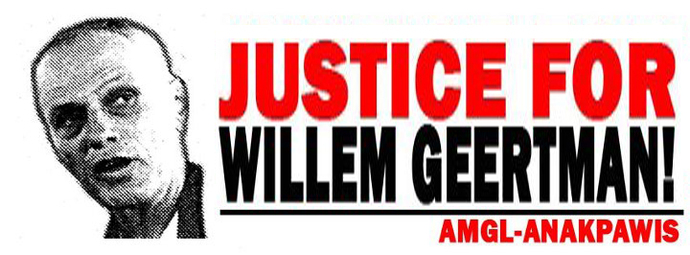
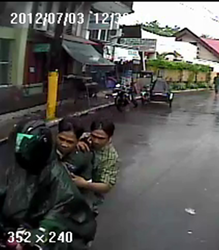
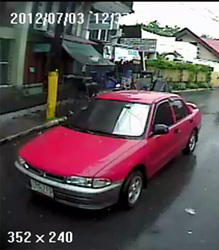

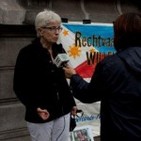
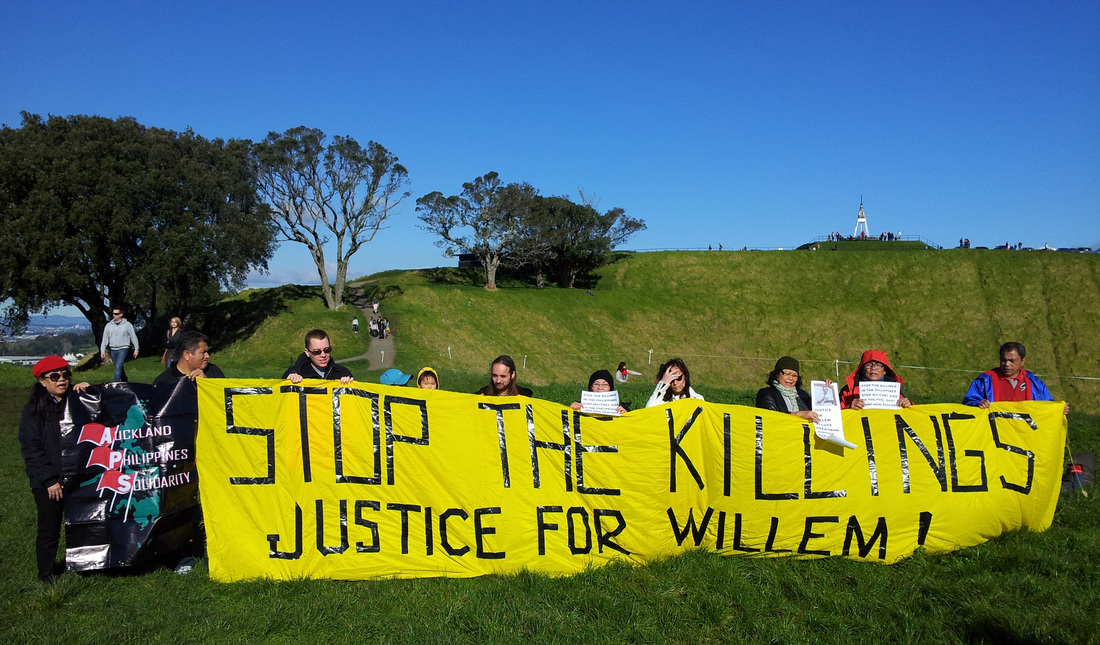
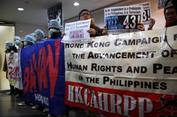
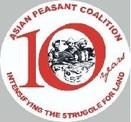


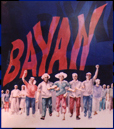



 RSS Feed
RSS Feed
